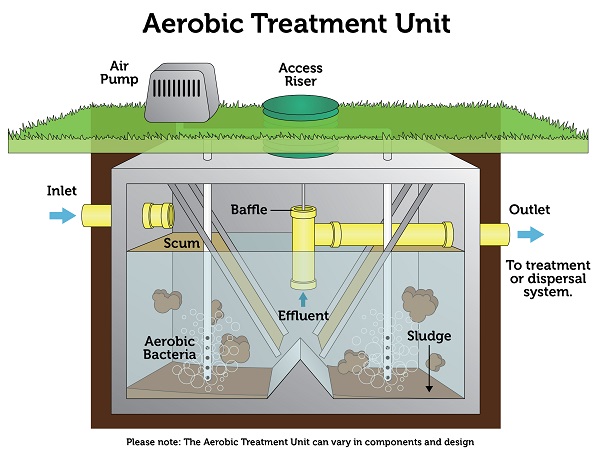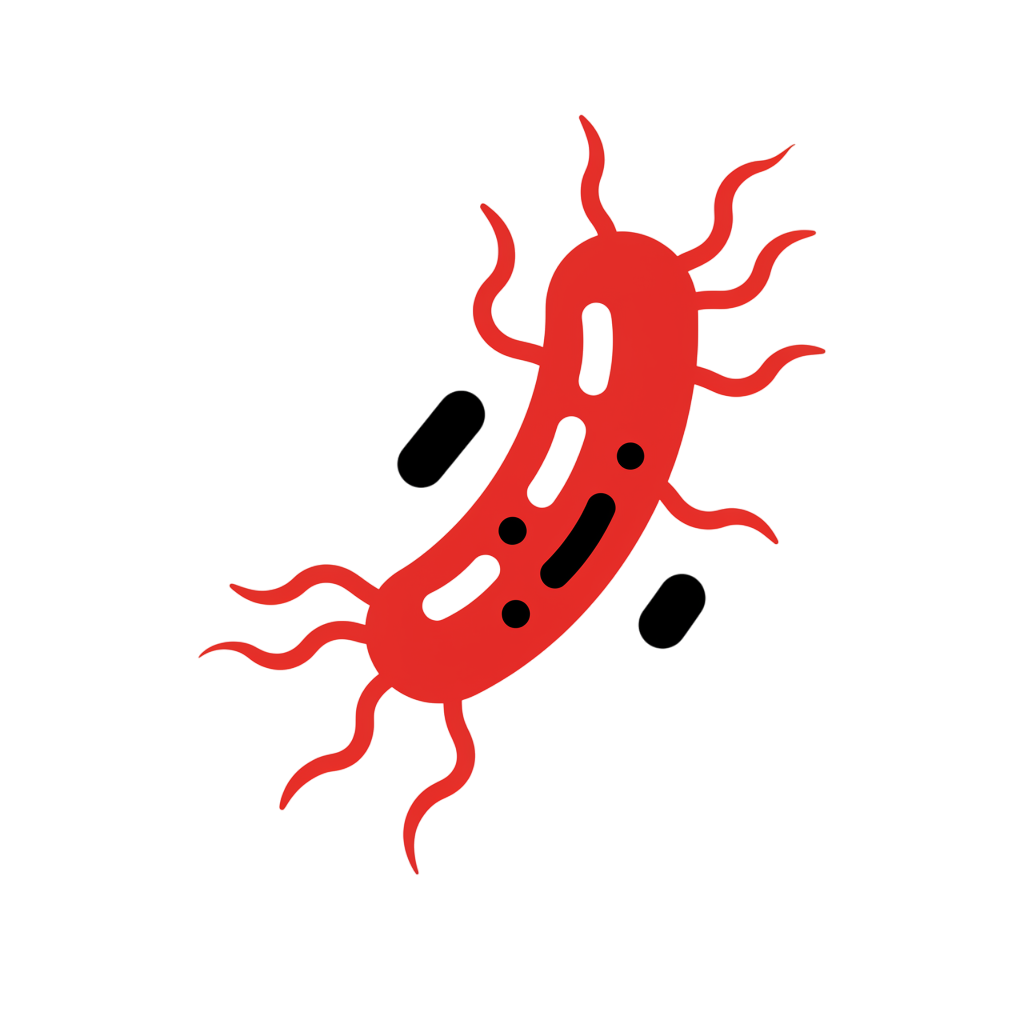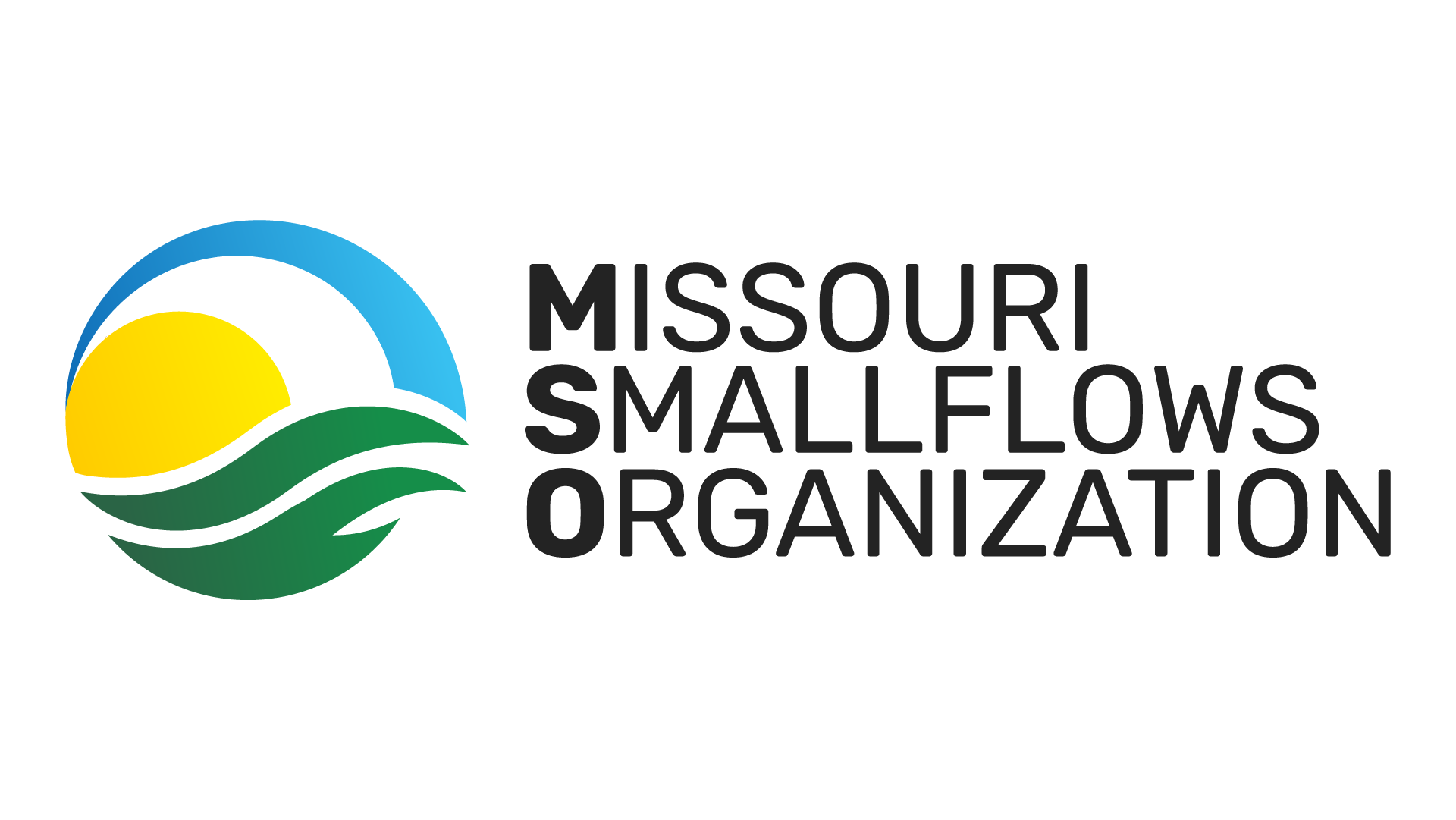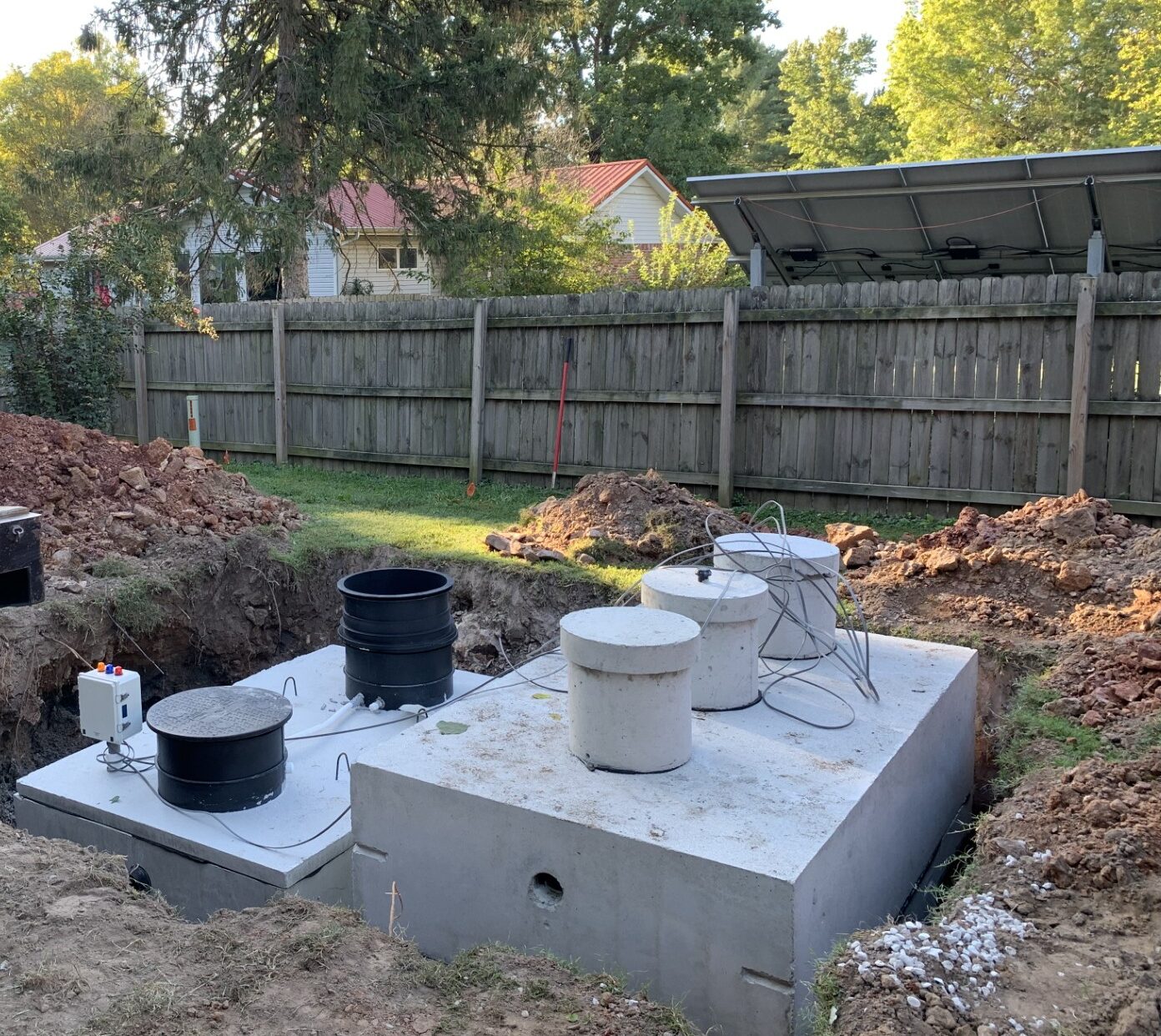Aerated Treatment Units (ATUs)
Advanced Treatment for Sites with Soil or Space Limitations
Aerated Treatment Units (ATUs) offer a powerful alternative when conventional systems aren’t an option. These systems treat wastewater more thoroughly by introducing oxygen, promoting the growth of aerobic bacteria that break down contaminants more efficiently. They’re ideal for properties with poor soil quality, shallow depths, or limited space.
How It Works
Wastewater flows into a primary chamber, where solids settle and scum rises. The partially treated effluent then moves to the aeration chamber, where oxygen is pumped in to activate aerobic bacteria that digest organic matter more effectively.
Some units contain media above the aerator that enhances the growth of beneficial organisms.
In the final clarification chamber, any remaining solids settle out and are filtered, resulting in higher-quality effluent that can safely enter the dispersal area or soil.
ATUs are ideal for:
Sites with limited or poor soil
Properties with space constraints
Locations needing added environmental protection

Image source from NOWRA
Why Regular Maintenance Is Essential
Neglecting your ATU system can lead to costly failures, health hazards, and environmental damage. These advanced systems require consistent upkeep to function correctly.
Health Risks
Poorly treated wastewater can contain:
Hepatitis A
Salmonella
Giardiasis
Cholera
Tetanus

Typhoid fever
Contamination may affect wells, groundwater, and local waterways, also increasing nitrogen and phosphorus levels in the environment.
Financial Risks:
Preventative maintenance: $150–$300
System replacement: $10,000–$30,000
Failed systems can reduce property value or leave no legal treatment options
Do’s of ATU System Maintenance
- Obtain permits before making repairs or modifications
- Hire certified professionals for installation and service
- Keep access lids visible, secure, and child-proof
- Pump your system every 2–5 years
- Document all inspections and service visits
- Divert stormwater runoff away from the system
- Use water-saving devices and habits
Don’ts of ATU System Use
- Don’t enter the system, toxic gases can be deadly
- Don’t drive or park over tanks or treatment areas
- Don’t plant trees or large shrubs near the unit
- Don’t flush grease, chemicals, medications, or wipes
- Don’t use septic additives unless prescribed
- Don’t ignore alarm indicators or unusual odor
Want to Learn More?
View our Aerated Treatment Units Homeowner Brochure (PDF) for helpful visuals and maintenance tips.
Questions? We’re here to help.
contact@mosmallflows.org
(417) 631-4027

